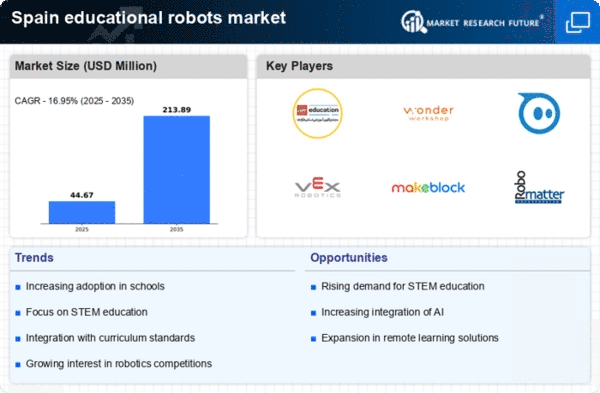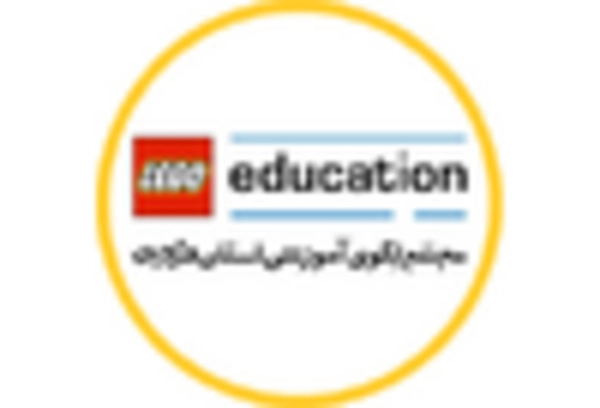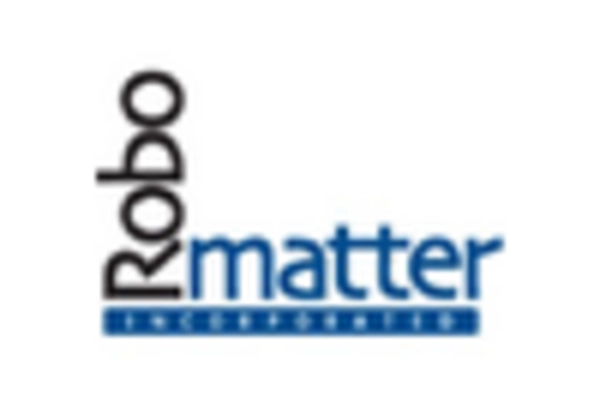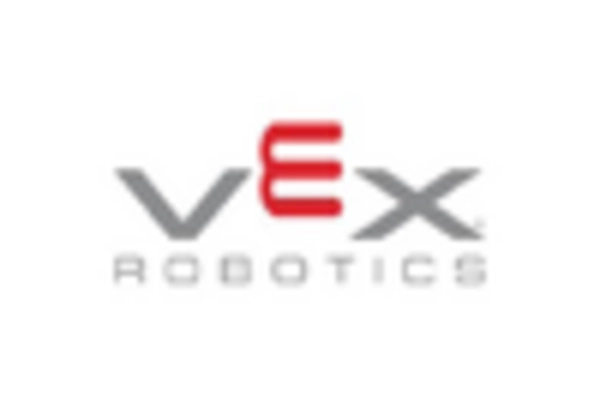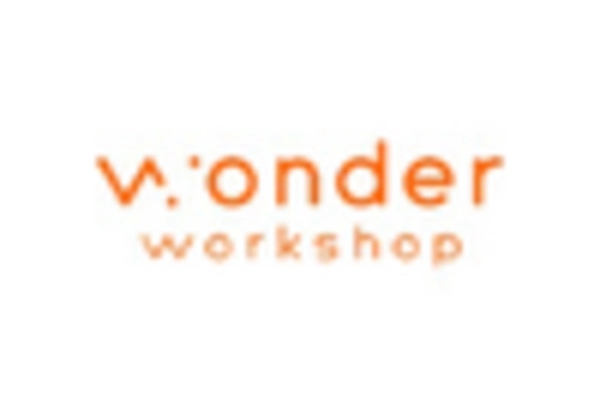Increased Focus on Skill Development
The educational robots market in Spain is benefiting from an increased focus on skill development among students. As the job market evolves, there is a growing recognition of the need for skills such as coding, robotics, and engineering. As the job market evolves, there is a growing recognition of the need for skills such as coding, robotics, and engineering. Educational robots serve as effective tools for teaching these skills, making them highly sought after in schools. Recent surveys indicate that over 40% of educators believe that incorporating robotics into the curriculum enhances students' readiness for future careers. This emphasis on skill development is likely to drive the demand for educational robots, as schools aim to equip students with the necessary competencies for the workforce. The educational robots market is thus positioned to thrive in this environment.
Rising Demand for Interactive Learning
The educational robots market in Spain is significantly influenced by the rising demand for interactive learning experiences. Educators and parents alike are increasingly seeking tools that engage students in a hands-on manner. Educators and parents alike are increasingly seeking tools that engage students in a hands-on manner. Educational robots provide an interactive platform that fosters creativity, problem-solving, and critical thinking skills among students. Market data suggests that the demand for interactive learning tools has surged by over 25% in recent years, reflecting a shift in educational paradigms. This trend is likely to continue as more schools recognize the benefits of incorporating robotics into their teaching methodologies. Consequently, the educational robots market is poised for growth as it aligns with the evolving needs of modern education.
Technological Advancements in Robotics
Technological advancements play a crucial role in shaping the educational robots market in Spain. Innovations in artificial intelligence, machine learning, and robotics are making educational robots more sophisticated and user-friendly. These advancements enable robots to adapt to individual learning styles, providing personalized educational experiences. As technology continues to evolve, the capabilities of educational robots are expected to expand, making them more appealing to schools and educational institutions. The market is projected to grow at a CAGR of 15% over the next five years, driven by these technological improvements. This growth indicates a strong potential for educational robots to become integral components of the learning environment.
Government Initiatives for Robotics Education
The educational robots market in Spain is experiencing a boost due to various government initiatives. These initiatives aim to integrate robotics into the curriculum. The Spanish government has recognized the importance of technology in education and has allocated funding to support schools in acquiring educational robots. This funding is part of a broader strategy to enhance digital literacy among students. Reports indicate that approximately 30% of schools in Spain have received financial support for technology integration, which includes educational robots. Such initiatives not only promote the use of robotics in classrooms but also encourage teachers to adopt innovative teaching methods. As a result, the educational robots market is likely to see increased demand as schools strive to meet these new educational standards.
Collaboration Between Educational Institutions and Tech Companies
Collaboration between educational institutions and technology companies is emerging as a key driver for the educational robots market in Spain. Partnerships are being formed to develop tailored educational robots that meet the specific needs of schools. These collaborations often result in customized solutions that enhance the learning experience for students. For instance, tech companies are providing training and resources to educators, ensuring they can effectively integrate robots into their teaching. This synergy is likely to foster innovation and lead to the development of more advanced educational robots. As a result, the educational robots market is expected to expand as these partnerships continue to flourish, creating a dynamic ecosystem for educational technology.

